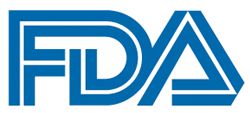Alectinib Approved by FDA for Frontline Treatment of ALK-Positive NSCLC
Alectinib (Alecensa) has received FDA approval for the frontline treatment of patients with ALK-positive metastatic non–small cell lung cancer, Genentech, the manufacturer of the second-generation ALK inhibitor, announced today.

Alectinib (Alecensa) has received FDA approval for the frontline treatment of patients with ALK-positive metastatic nonsmall cell lung cancer (NSCLC), Genentech (Roche), the manufacturer of the second-generation ALK inhibitor, announced today.
The approval is primarily based on findings from the phase III ALEX study, which showed alectinib improved progression-free survival (PFS) by 47% compared with crizotinib (hazard ratio [HR], 0.53; 95% CI, 0.38-0.73;P<.0001), as assessed by an independent review panel.
In addition to granting this new indication, the FDA has also converted alectinib’s accelerated approval for patients withALK-positive NSCLC who have progressed on crizotinib to a full approval.
“Our goal is to develop medicines that have the potential to significantly improve upon the standard of care,” Sandra Horning, MD, chief medical officer and head of Global Product Development, Genentech, said in a statement. “In our pivotal study, Alecensa significantly extended the time that people lived without their disease worsening compared to crizotinib and also showed a marked reduction in the risk of their cancer spreading to the brain.”
In the ALEX trial, researchers at 161 locations in 31 countries randomly assigned treatment-naïve patients to twice daily dosages of 600 mg of alectinib (n = 152) or 250 mg of crizotinib (n = 151). Median PFS, as determined by an independent review committee, was 25.7 months (95% CI, 19.9 to not reached) in the alectinib arm versus 10.4 months (95% CI, 7.7-14.6) in the crizotinib arm.
The overall response rate (ORR) with alectinib was 79% (95% CI, 72-85) versus 72% (95% CI, 64-79) with crizotinib (P= .1652). The complete response rates were 13% versus 6%, respectively, and the partial response rate was 66% in both arms.
Eighty-two percent of patients receiving alectinib had a response duration ≥6 months, with 64% and 37%, having response durations ≥12 months and ≥18 months, respectively. The corresponding rates in the crizotinib arm were 57%, 36%, and 14%.
Alectinib reduced the risk for progression in the CNS by 84% compared with crizotinib (HR, 0.16; 95% CI, 0.10-0.28;P<.0001). The 12-month cumulative rate of CNS progression for people with or without existing CNS metastases at baseline was 9.4% (95% CI, 5.4-14.7) in the alectinib arm and 41.4% (95% CI, 33.2-49.4) for crizotinib.
The CNS ORR was 81% (95% CI, 58-95) in the alectinib arm versus 50% (95% CI, 28-72) in the crizotinib arm. The complete response rates were 38% versus 5%, respectively. CNS response duration was 12 months or longer in 59% of the crizotinib group versus 36% of the alectinib group.
Alectinib was associated with fewer serious adverse events (AEs). In ALEX, 41% of patients assigned to alectinib experienced grade ≥3 AEs compared with 50% in the crizotinib group. Additionally, AEs leading to discontinuation (11% vs 13%), dose reduction (16% vs 21%), and dose interruption (19% vs 25%) were all lower with alectinib.
A separate phase III study, the Japanese phase III J-ALEX trial, also demonstrated the benefit of crizotinib inALK-positive NSCLC. In J-ALEX, 207 Japanese patients withALK-positive advanced or recurrent NSCLC who had not been previously treated with an ALK inhibitor were randomized to 300 mg of alectinib twice daily (n = 103) or 250 mg of crizotinib twice daily (n = 104).
The median PFS was 25.9 months in the alectinib arm versus 10.2 months in the crizotinib arm (HR, 0.38; 95% CI, 0.26-0.55;P<.0001). Among patients without brain metastases at baseline, alectinib reduced the risk of progression in the CNS by 81% (HR, 0.19; 95% CI, 0.07-0.53) and in patients with brain metastases at baseline, alectinib reduced the risk of CNS progression by 49% (HR, 0.51; 95% CI, 0.16-1.64).
Alectinib previously received an FDA breakthrough therapy designation as a frontline treatment for patients withALK-positive NSCLC.
Reference:
FDA Approves Genentech’s Alecensa (Alectinib) as First-Line Treatment for People with Specific Type of Lung Cancer. Genentech. Available at: http://bit.ly/2zmLda7. Accessed November 6, 2017.